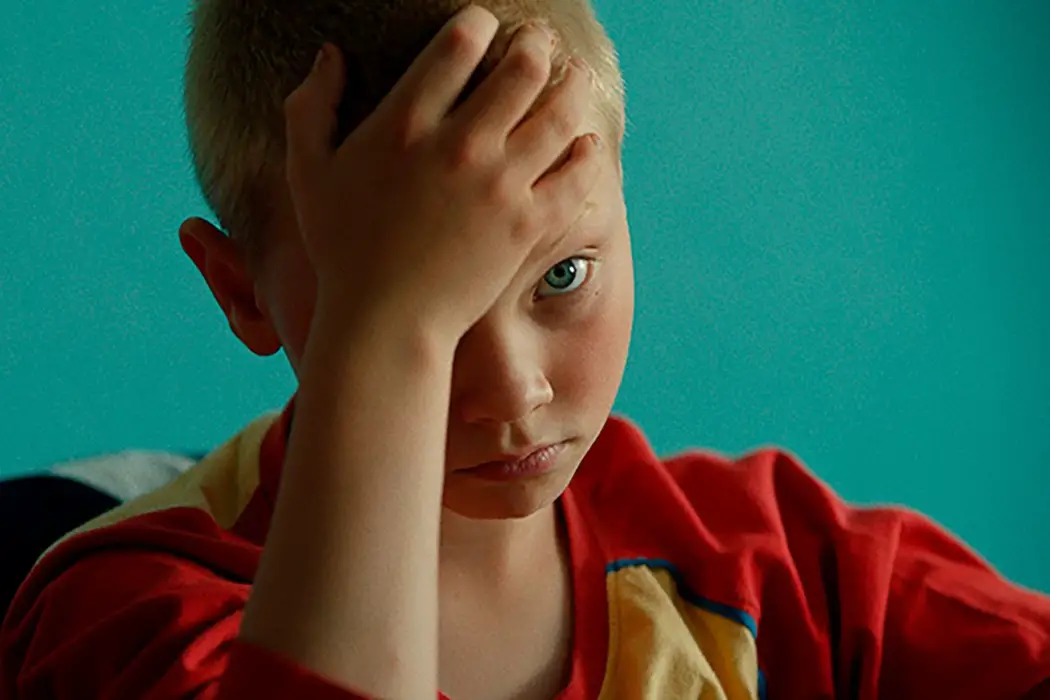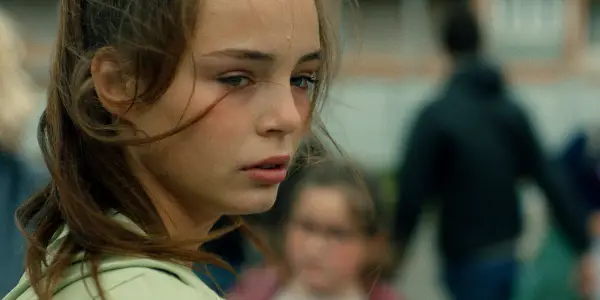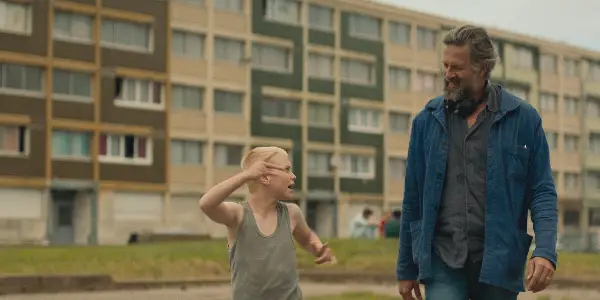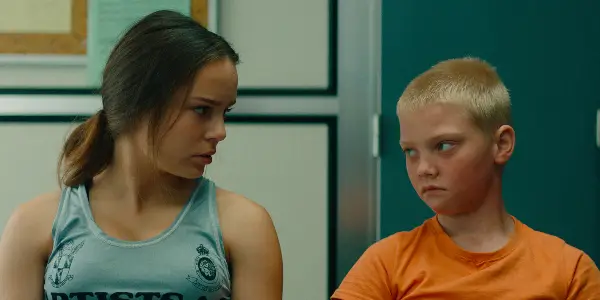THE WORST ONES: A French Drama With Its Heart In The Right Place

Film student and enthusiast from Wisconsin. Lover of films of…
It would have been easy for the adult characters of The Worst Ones (Les Pires) to be demonized to a cartoonish degree and the children to be nothing but one note, completely innocent victims of circumstance but the film itself knows that life is not as cut and dry as that. It is a grounded drama with moments of light Kiarostami influence, in the way it examines a film within a film and its effects on its partakers, but generally feels wholly Truffaut: the adults of the film’s world are complicated, heartbroken creatures while the children are left to be corrupted by their elders’ woes and carry their traumas. But where Truffaut conveyed this loss of innocence with a sort of melancholic, filmic magic, co-writers and co-directors Lise Akola and Romane Gueret approach this with a modern neorealist style.
Vanishing Innocence
Winner of the Un Certain Regard Prize at the 2022 edition of the Cannes Film Festival, The Worst Ones is an examination of sorts of the slowly corrupting innocence of children as they are cast in a film in their small, proletarian community. The film primarily follows Timéo Mahaut as Ryan, a troubled young boy with a sorted home life and problems at school, and Lily, played by Mallory Wanecque, a teenage girl who’s haunted by a personal tragedy and struggles with social tormenting due to a rumored history of promiscuity. They are cast as brother and sister in the film within the film, a sort of neorealist-inspired indie itself, by the looks of it, by the director of the film, Gabriel (Johan Heldenbergh)

For two young actors who have never acted on screen before, Mahaut and Wanecque do a quite excellent job as two severely extremely damaged children who have each drifted into a strange sort of quiet isolation due to the loss of their innocence, both in very different ways but with similar threads. Mahaut is by default the slightly more interesting performance of the two as he has the natural unwieldiness and unpredictability of a young boy but that makes his moments of unexpected vulnerability that much more effective and touching, knowing that this young kid is feeling these harsh feelings without even understanding them completely. It’s a more complex performance than you’d think at first glance, and it’s truly heartbreaking in a way.
Major praise needs to be given to Mallory Wanecque as well, however, as her role is altogether complicated, awkward, and sad. Being a teenager, her emotions are a lot more outwardly complicated than those of Ryan’s but just as valid: she is dealing with the tragedy of a personal loss, dealing with her peers constantly bullying her for her blossoming sexuality (which rears its head in a scene with annoying teenage cliches and unrealistic teenage dialogue: a poor scene that sticks out like a sore thumb when compared to the rest of the film), and dealing with the complicated feelings of being in love for the first time (especially because she’s in love with someone with whom she knows that a relationship would never work). For a young actor to balance all that and do it with the, for the most part, subtly and consideration that Wanecque does, is a very impressive feat.
Handheld Emotion
The film is shot in a very common way for European films of this style, especially ones inspired by their neorealist ancestors: lots of mediums and handheld. The handheld definitely adds a sense of weight to what is happening on screen and in certain moments it can add to the emotional instability of the characters which inhabit the frame yet it feels as though something is missing in the visual style of the film. There aren’t too many shots that are very memorable or anything that particularly stands out visually.

The film is definitely not trying to be some grandiose visual accomplishment, it’s far more concerned with the ethical and emotional questions it poses but it still feels lacking in filmic flair in many aspects. Every technical aspect is more than serviceable but it just feels lacking in a way that’s hard to explain, not quite boring or poor, just completely unremarkable and acceptable and one can’t help but feel like this would have felt even more effective with some more varied framing, shot lengths, or even a change in the color grading. Still, the handheld definitely helps guide the emotion home but it is disappointingly lacking for the most part and visually mostly indistinct from many of its French contemporaries.
Trouble on Set
When taking the synopsis into consideration, it might be expected for this film to try not to pull any punches and deliver a few melodramatic and lame twists or make its obviously flawed adult characters become truly vile and irredeemable people in its third act but the film isn’t interested in that sort of narrative trickery and it’s all the better for it.
The film is less interested in pushing the narrative forward with gimmicks or plot surprises and is more interested in being a comment on the ethics of casting real children in roles, especially difficult roles, in film and television. It’s an important issue to address and one that needs to be covered with the most sincerity and delicacy and Mahaut and Wanecque succeed in that regard. There are many scenes of social awkwardness and pieces of dialogue that are morally questionable and can subtly and quickly strike the viewer with a moment of cringe (like when a PA hits something with her car while children are riding in it and explain to them how she just got her license) but it never attempts to pull the rug out from under you. It is less interested in being a seething, angry expose of the evil of putting children in works of art and more interested in asking whether these roles instill more confusion within them: are they truly emotionally mature or capable enough to understand the difference between these fictionalized feelings and their own, very real ones? Is that a question worth asking?

The film within the film’s casting of real, troubled youth feels intentional and could even be seen as exploitation in a way, as brought up by angry citizens of the community who believe that their efforts to restore the community are being thwarted by the film’s less than an ideal depiction of their circumstances. Another example of this is when a sex scene is shot for the film within the film with two actors who are underage in the film and underaged in real life and the scene plays out in a nearly unbroken, awkward way which adds a very meta element to it all: what’s the difference between the film within the film showing underage people half naked and the film showing that in a metatextual way? It’s an interesting question that the film often ponders even if it never quite leans into an answer.
The Worst Ones asks some very complex and compelling questions about the ethics of filmmaking and the emotions of young actors and it is intelligent enough never to ponder these questions with cheap tricks or gimmicks. The result here feels more than genuine and completely honest, it’s a film that treats its young leads with respect and doesn’t try to answer for them or their emotions: a very smart choice. Whether or not this leads to any sort of change within the film industry concerning the casting and treatment of children in films is yet to be seen but it’s more than worth the effort and this particular effort is a very honest and overall worthwhile one.
The Worst Ones will release in select theaters across the U.S, starting in New York City, on March 24th.
Watch The Worst Ones
Does content like this matter to you?
Become a Member and support film journalism. Unlock access to all of Film Inquiry`s great articles. Join a community of like-minded readers who are passionate about cinema - get access to our private members Network, give back to independent filmmakers, and more.
Film student and enthusiast from Wisconsin. Lover of films of every kind but particularly an obsessor of the European New Wave.













